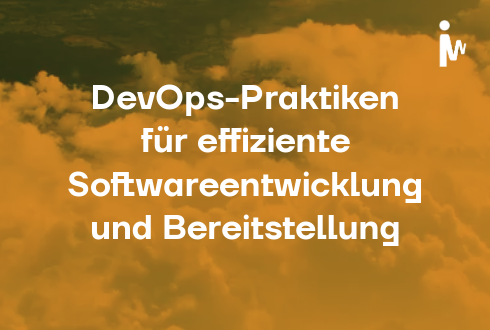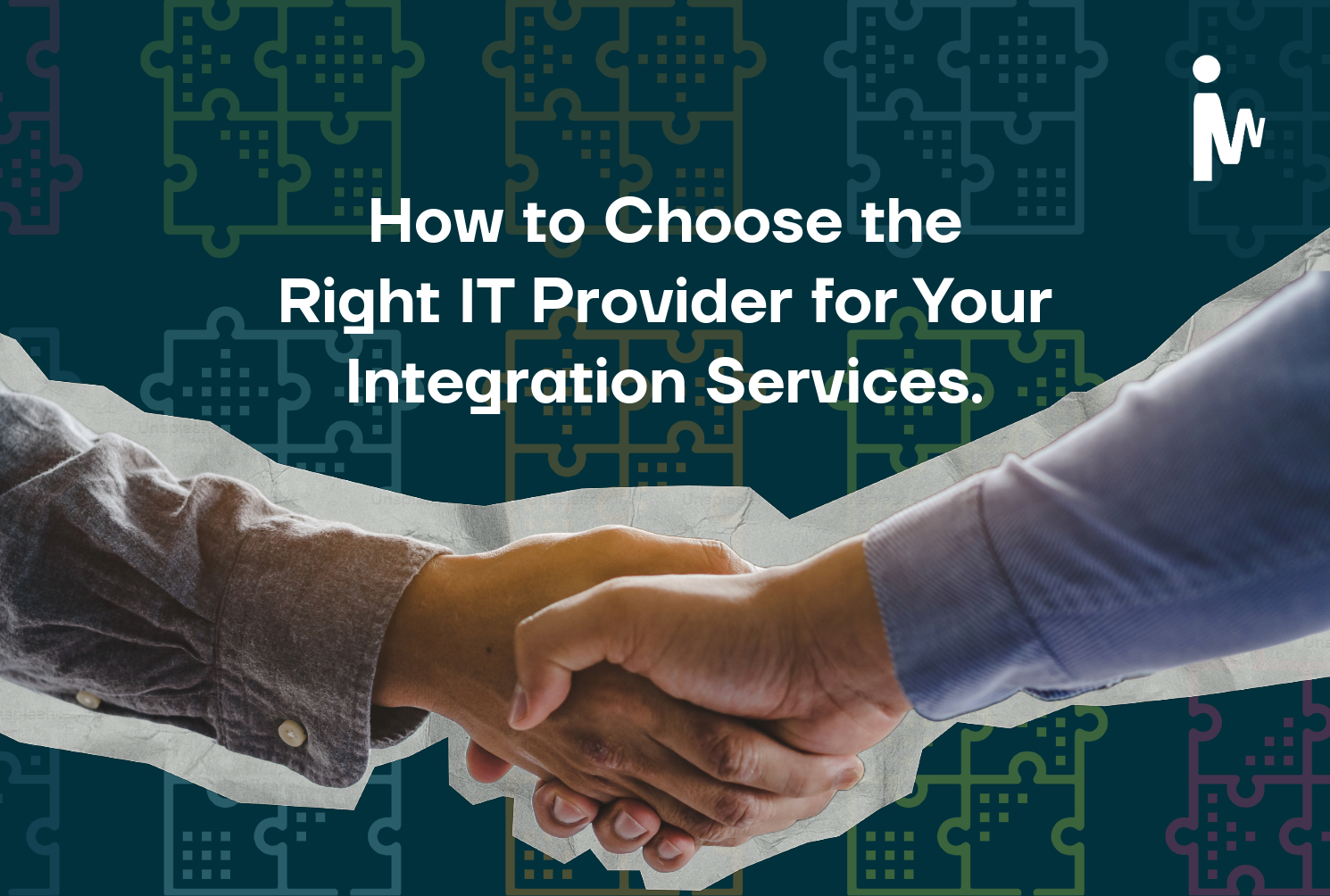Why IT integration is essential for companies.
 integrationWorks
·
4 minute read
integrationWorks
·
4 minute read

IT integration is a term that crops up time and again in the world of IT service providers. Companies expect it to result in optimized processes, an improved database and ultimately increased efficiency. But is IT integration really a decisive factor for business success? The answer is clear: yes. Well thought-out IT integration can not only reduce costs, but also secure competitiveness in the long term.
Many companies work with a variety of different software solutions. CRM systems, ERP applications, e-commerce platforms and support tools are often not linked with each other. As a result, data has to be maintained twice, processes come to a standstill and valuable knowledge is lost. IT service providers are faced with the challenge of connecting these isolated solutions and enabling seamless communication between different systems.
Increased efficiency through optimized IT processes
A company that relies on IT integration can benefit from a wide range of advantages. The biggest gain lies in the automation and optimization of processes. When data is synchronized in real time between different applications, the manual effort of maintaining multiple systems is eliminated. This reduces sources of error and provides a better basis for decision-making. In addition, a uniform IT landscape allows companies to react more quickly to changes.
Efficiency gains through IT integration are particularly evident in areas where a lot of time was previously spent on administrative activities. For example, customer inquiries can be processed more quickly if the support team has direct access to order data, contracts and previous communication histories. Marketing departments benefit from a networked database that enables personalized campaigns. An optimized IT infrastructure is also noticeable in sales, as employees can access customer information in real time instead of having to manually reconcile different systems.
IT integration as the key to better customer satisfaction
In addition to the internal effects, IT integration also has a direct impact on customer satisfaction. When information is centrally available and flows seamlessly between systems, queries can be answered more quickly and problems solved more efficiently. Customers immediately notice when a company is professionally organized and works smoothly. This strengthens trust in the brand and increases the likelihood of a long-term business relationship.
IT service providers who establish IT integration as a core competence can position themselves as strategic partners for their customers. Companies need more than just software - they need solutions that fit into their existing structures and can be flexibly adapted to new requirements. Intelligent IT integration helps to automate processes, optimize data flows and thus create the basis for sustainable growth.
Technological foundations for successful IT integration
A central point in the implementation of successful IT integration is the selection of the right interfaces. Modern API technologies make it possible to connect different systems without the need for costly in-house developments. Cloud solutions are playing an increasingly important role here, as they offer flexible integration options and enable location-independent use.
Another decisive factor is security. When companies network their IT systems, they must ensure that data is protected and that no unauthorized access can take place. IT service providers should therefore not only ensure a smooth connection, but also implement security concepts that guarantee the protection of sensitive data.
IT integration is not a one-off project, but a continuous process
The introduction of IT integration requires careful planning. It is not enough to simply link systems together - a strategy must be developed that takes long-term scalability and flexibility into account. Companies should think in advance about which processes should be automated, which data sources need to be integrated and which technologies are best suited for this.
A common mistake is to view IT integration as a one-off project. In reality, however, it is an ongoing process that needs to be continuously optimized. New technologies, changing business models and growing demands require a flexible IT infrastructure that can be adapted dynamically. IT service providers can play a decisive role here as consultants and implementers by not only creating the technical foundations, but also developing long-term strategies for their customers.
Employees as a success factor in IT integration
In addition to the technical implementation, it is important to prepare employees for the changes. Successful IT integration requires everyone involved to understand the new processes and be able to use them effectively. Training and workshops help to create acceptance and ensure that the new systems are used optimally.
The financial benefits of well thought-out IT integration
A well-integrated IT system not only brings companies operational benefits, but also has a direct impact on financial performance. Cost savings through automated processes, increased productivity and higher customer satisfaction lead to a clearly measurable return on investment. Companies that invest in well thought-out IT integration at an early stage secure a decisive advantage over competitors who continue to work with isolated systems.
Future-proof IT integration for sustainable business success
The importance of IT integration will continue to grow in the coming years. Digitalization, automation and the increasing use of AI technologies require an IT infrastructure that is flexible and scalable. IT service providers that offer their customers sophisticated integration will become sought-after partners and can significantly enhance their own service portfolio.
For companies that want to successfully implement IT integration, it is crucial to work with an experienced IT service provider. Choosing the right partner can make the difference between an inefficient, complicated solution and a truly functioning, future-proof IT architecture.
Conclusion: using IT integration as a competitive advantage
To summarize, IT integration is much more than a technical process. It is a strategic success factor that determines efficiency, competitiveness and customer satisfaction. Companies that network their systems intelligently benefit from a smooth flow of data, faster processes and improved decision-making. IT service providers who specialize in this area can offer their customers real added value and position themselves as drivers of innovation in the industry.
The path to successful IT integration begins with a clear strategy. Companies should be aware of what goals they want to achieve with the integration and which technologies are suitable for this. With the right planning, the right tools and an experienced partner at your side, IT integration can become a real competitive advantage.
If you would like to find out more about how your company can benefit from optimized IT integration, please contact us. Together we will find the right solution for your individual requirements and help you to future-proof your IT landscape.



